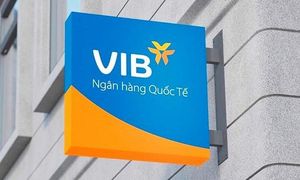On April 28, 2025, Channel 4 announced that its chief executive, Alex Mahon, will step down after nearly eight years at the helm. Mahon, who made history as the first female CEO of the broadcaster when she joined in 2017, is set to leave the organization this summer. Her departure follows closely on the heels of BBC Chief Content Officer Charlotte Moore's announcement to leave for a new role at Left Bank Pictures, highlighting a significant shift in the UK's broadcasting landscape.
During her tenure, Mahon faced numerous challenges, including government attempts to privatize Channel 4. She successfully defended the public service broadcaster's status, emphasizing its unique position as a commercially funded entity that reinvests advertising revenue back into the UK production community. This fight against privatization was one of the cornerstones of her leadership, reflecting her commitment to maintaining Channel 4's public service remit.
Under Mahon's guidance, Channel 4 underwent a considerable transformation, relocating its headquarters to Leeds and expanding its presence outside of London. This move was part of a broader strategy to ensure that the broadcaster better represents the UK as a whole. Mahon noted, "From navigating the threat of privatisation (twice), to shifting out of London, to digital transformation, lockdowns, political upheaval, advertising chaos – there has never been a dull moment. But through every twist and turn, there’s been one constant: the astonishing calibre, resilience, and creativity of all my colleagues at Channel 4."
Despite the successes, Mahon also faced criticism during her time, particularly during a commissioning downturn that led to a significant reduction in staff. Two years ago, Channel 4 announced a plan to lay off around 200 employees, a decision that sparked backlash from producers who felt the broadcaster was not doing enough to support the industry. Nevertheless, Mahon remained focused on the long-term vision for Channel 4, which included a digital-first approach to broadcasting.
Notable productions during Mahon's tenure include the acclaimed drama "It’s a Sin," the documentary "Russell Brand: In Plain Sight," and the entertainment format "The Piano." Additionally, Channel 4 has co-financed critically lauded films such as "The Zone of Interest," "The Banshees of Inisherin," "All of Us Strangers," and "Poor Things." These projects have not only garnered awards but have also contributed to important cultural conversations.
Dawn Airey, Channel 4's Interim Chair, praised Mahon’s impact on the organization, stating, "Alex is a great figure in British television. She has been one of the most impactful CEOs since Jeremy Isaacs’ founding of Channel 4 more than 42 years ago. She is business-minded and has also been transformational both culturally and creatively, proving time and again her extraordinary ability to inspire and drive positive and meaningful change."
As Mahon prepares to leave, she expressed gratitude for her time at Channel 4, saying, "Working at Channel 4 has been a lifetime privilege because Channel 4 is the most extraordinary organisation. What we get to do here is much more than television because we reflect our country with humour, creativity, grit, and care." She emphasized the importance of challenging conventions and changing conversations through programming.
Channel 4 COO Jonathan Allan will step in as interim CEO while the board searches for Mahon's permanent successor. Potential candidates for the role include Allan himself, who applied for the position previously, and the broadcaster's current chief content officer, Ian Katz. Externally, industry insiders suggest that Jay Hunt, Apple's European creative boss, may also be a contender for the top job.
In addition to her leadership at Channel 4, Mahon has been a vocal advocate for women's health and disability representation in the workplace, launching the UK media's first menopause and pregnancy loss policies. Her commitment to these issues has been a defining aspect of her leadership, further solidifying her legacy within the organization.
As she reflects on her nearly eight years leading Channel 4, Mahon stated, "Together, I hope that we have evolved what Channel 4 means and what it stands for. We’ve protected the brand, even as we reinvented it. We’ve stayed risky, relevant, and relentlessly new – with 60% of our shows fresh each year." This commitment to innovation and relevance has been crucial in navigating the rapidly changing media landscape.
Looking forward, Channel 4 is poised to continue its mission of providing diverse and engaging content that reflects the UK’s multifaceted society. Mahon’s exit marks the end of a significant chapter for the broadcaster, but her influence will undoubtedly shape its future trajectory.
As the search for a new CEO begins, the broadcasting community will be watching closely to see who will take the reins of this iconic institution and how they will build upon Mahon’s legacy.






